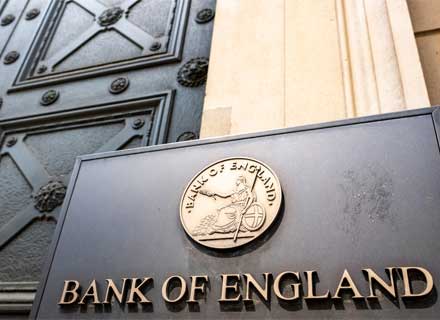The Bank of England has held its key interest rate, while issuing a warning that the ratio will stay high to tackle inflation.
The British central bank’s Monetary Policy Committee (MPC) voted 6-3 in favour of keeping the rate at 5.25%, the highest level in more than 15 years.
While the United States Federal Reserve had also frozen its borrowing costs, it gave a different picture than its British counterpart, by suggesting that the American economy might witness an ‘Interest Rate Relief’ from 2024 onwards.
“Monetary policy would need to be sufficiently restrictive for sufficiently long to return inflation to the 2 per cent target sustainably in the medium term,” The Bank of England stated further, while adding, “The committee continued to judge that monetary policy was likely to need to be restrictive for an extended period of time.”
While the United Kingdom inflation dropped sharply in October 2023 to 4.6%, but the ratio remains at its highest level, compared to its G7 (Group of Seven) peers. Bank of England wants to keep inflation at a 2% rate.
However, there is another worry in the form of the latest GDP data, which shows that the European economic powerhouse contracted by 0.3%. This data alone intensifies the recession risk.
While it was the first time since July 2023 that the British GDP growth slowed down on a month-by-month basis, the Sterling fell against the United States Dollar and was weaker against the euro too.
Governor Andrew Bailey, in his recent letter to finance minister Jeremy Hunt, said that there was “still some way to go” in policymakers’ efforts to drag inflation down.
Inflation surged to a 41-year peak at 11.1% in October 2022, stoked by spiking energy prices after the beginning of the Ukraine war. While the West (including the UK and Europe) decided to punish Russia economically due to its military campaign against its neighbour, the Kremlin countered it by diverting much of its global energy supplies to markets like Asia, whereas Britain underwent a cost-of-living crisis.
Coming back to the latest Bank of England meeting, six Monetary Policy Committee members voted in favour of no change, but three others called for an increase to 5.5% and cited “evidence of persistent inflationary pressures”.
The Bank of England also froze borrowing costs at its previous gatherings in September and November 2023, thereby snapping a series of 14 rate hikes.
Sectors like construction, manufacturing and services are now slowing down in the United Kingdom. The overall economy also flatlined in the three months to October 2023, while the other British government data shows that the unemployment steadies and wage growth retreats around the same point in time.
Hunt has also maintained a stance about the Bank of England rate hikes impacting economic activities.
Bank of England, on the other hand, has stated that despite its multiple rate-hikes prolonging a cost-of-living squeeze, retail banks are well equipped to contain the fallout.
These banks pass on Bank of England rate hikes, affecting customers whose home loans come with variable interest rates, as well as those, whose fixed-term mortgage deals are expiring.

